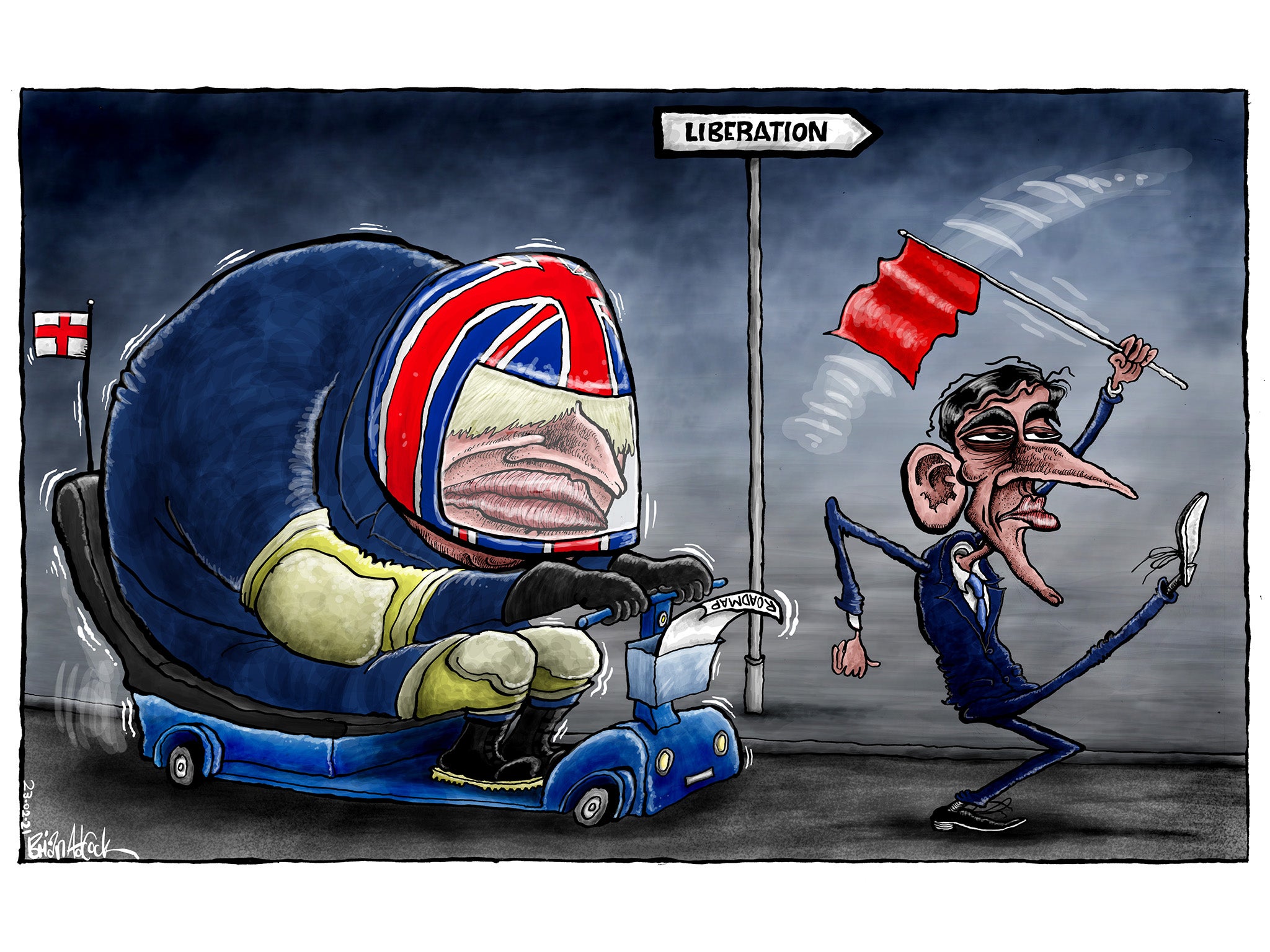There is now clear light at the end of the tunnel over the pandemic – but care still has to be taken
Editorial: It has been been a day of good news over the efficacy of the Covid-19 vaccines and the deliberate nature of the possible road to normalcy should be welcomed

After a year of many difficulties, some good news, and genuine cause for optimism.
Public Health England has confirmed the extreme efficacy of the Pfizer Covid-19 vaccination both in protecting individuals and reducing infection in the community. Meanwhile, a study released by Public Health Scotland has linked the vaccination drive with greatly reduced Covid-related hospital admissions.
The prime minister Boris Johnson’s “roadmap” out of lockdown seems well-founded in science, and appears to carry the authority of the Scientific Advisory Group for Emergencies (Sage). Talk of “light at the end of the tunnel” is starting to gain some real meaning. It may be flawed, but, at first sight, this plan seems more cautious and carries more chance of success than the previous – much maligned – attempts to relax restrictions on social contact and the economy.
The changes apply for England only, though leaders of devolved administrations have been in contact to coordinate a lifting of restrictions. The roadmap is showing an estimated final arrival date of 21 June, if not later. It is only then, some four months away, that the lockdown can be said to have been lifted. It will be a long and winding round to recovery, with plenty of waypoints and reviews on the day.
This is entirely right, and means that lessons are at last being learned about past errors. Had there been an earlier review of the response to the pandemic these might have been usefully pointed out earlier. The time for a reckoning on the government’s performance – and full accountability – cannot now be long delayed.
In terms of the timetable, opening schools remains not without risk – and the clamour to return all pupils to the classroom means that other parts of the economy have to wait much longer, with five-week gaps for review between each stage of the roadmap. Pubs, restaurants, shops, pools, gyms, stadia, and many other venues will not be open until well after Easter. However, as the chief scientific adviser, Sir Patrick Vallance, said: “The sooner you open up everything, the higher the risk of a bigger resurgence ... The slower you do it, the better.”
There is also the issue of economic support for those self-isolating. If significant numbers who are supposed to be self-isolating are not doing so because they can’t afford to, the roadmap will be subject to delays and diversions – so the situation needs to be kept under regular review.
The increasing prevalence of inoculation, a push for further availability of testing, much improved treatments and our ability to map the evolving virus genome give credible cause for hope that something like a more normal way of life can be resumed later in the year. If such developments can be quickly replicated in the developing world, with help from other nations, then the safety of the world can be more quickly secured. For none are safe until all are safe from Covid-19.
By historic standards of pandemics, the progress made by science and health professionals worldwide in responding to Covid-19 has been unprecedented. Many lives have been saved – and many more will be. When we eventually get back towards normality, that is something to toast.



Join our commenting forum
Join thought-provoking conversations, follow other Independent readers and see their replies
Comments